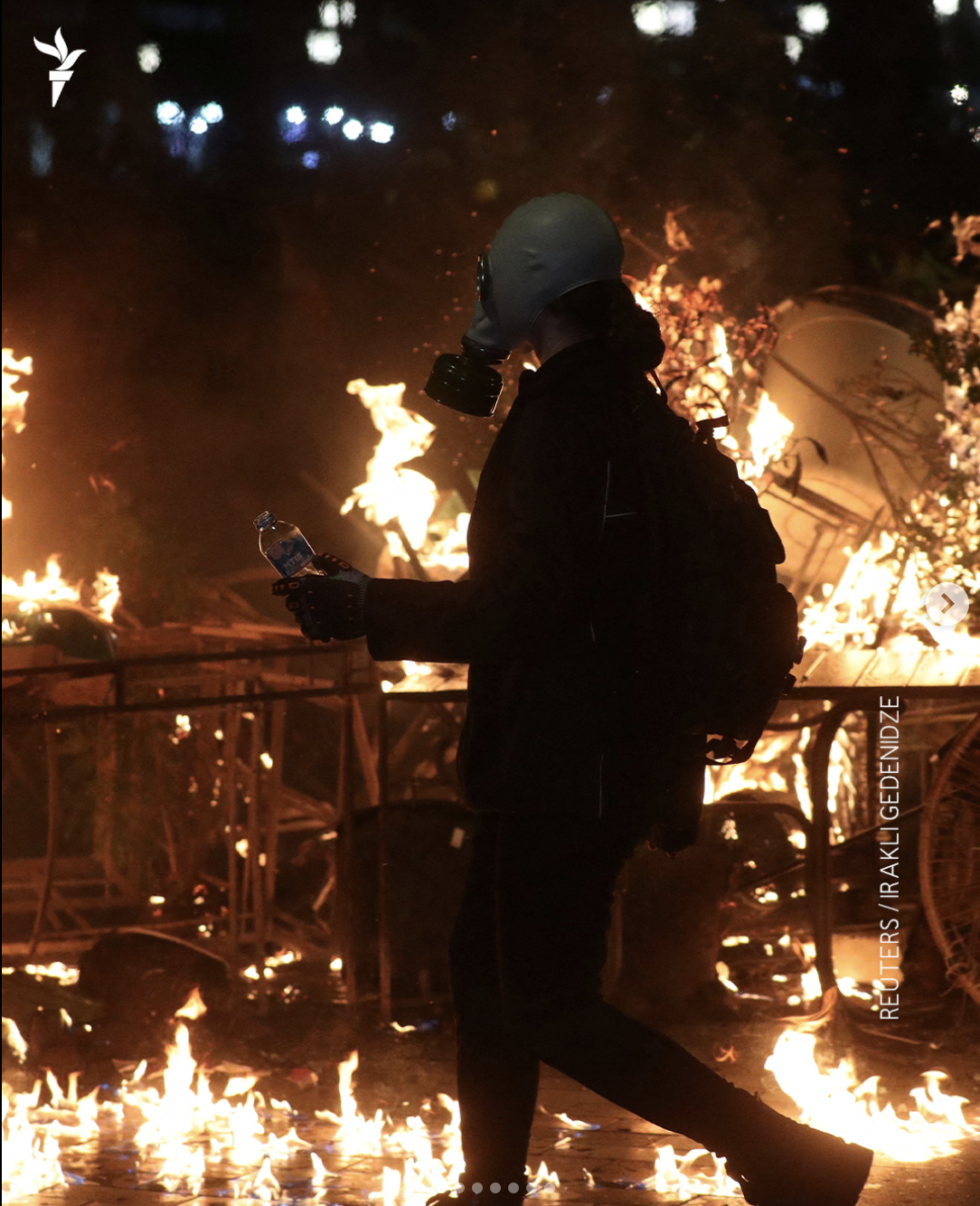A very polemical title for an opinion article, capturing the feeling of weariness and loss of hope in peaceful change.
That’s a hard statement to make, but it’s what one can feel when looking at the country’s internal politics over the past year.
A year ago, I wrote that Georgia risked becoming a second Belarus — a Moscow-backed, puppet authoritarian regime. Months have passed, and sadly, we now have to face reality: Georgia has become a banana state.
Month after month, the ruling party has hammered away at the opposition, at Europe, and at Western diplomats, advancing a rhetoric that shifts between narratives of a “global war party,” anti-genderism, “foreign agents,” and a so-called decadent Western liberal LGBTQ-imposed agenda. Their electoral base may not have expanded significantly, but the opposition’s and pro-European voters’ apathy has.
This was clearly visible in the recent municipal elections, where a majority of voters boycotted the polls for lack of a credible alternative — handing the Georgian Dream party overwhelming victories, with more than 80% in some municipalities.
How Can We Accuse Them?
The political landscape in the country is worse than ever. All the hope people had in December 2024 has vanished, replaced by the sad reality of an opposition too fragmented to unite and work together. Yet how can we blame the opposition leaders for being so divided, when the road to power looks more like a minefield than a staircase?
In recent months, several new figures have emerged—only to disappear as quickly as they appeared. Repression, blackmail, pressure, corruption — such are the obstacles facing anyone who dares to become a politician in Georgia today. The old opposition figures have simply vanished. Salome Zurabishvili, sadly, failed to unite the opposition or even create a minimal common front. That may prove to be her greatest political failure.
The hand of Georgian Dream has grown ever stronger, merciless, and — sadly — clever. Economically, the country is not doing too badly at the moment. “It is Georgia of the nineties, but we have electricity, gas, communication, transport, and a minimum of purchasing power.” Georgian Dream understood this perfectly: give people bread, and they will eat from your hand.
The propaganda — hammering on the risks of a “second Ukraine,” of war, economic collapse, and Western decadence — has become so relentless that a part of the population prefers to remain silent, simply to preserve what little stability they have. The future seems too uncertain to risk losing everything once again in a new civil conflict.
Georgia Has Lost — in the Sense That Hope Is Gone.
Hope for a quiet, democratic change — in the spirit of Saakashvili’s 2004 Rose Revolution — has faded away. The state’s growing repression, the labeling of peaceful protesters as terrorists, and the alleged (or staged) “assault” on the Orbeliani Palace have sealed the coffin.
That particular event, which took place on October 4th — the day of municipal elections across Georgia — remains highly contested. In reality, it gave the authorities exactly the pretext they needed to portray peaceful demonstrators as violent radicals terrorists seeking an armed uprising. To this narrative was added the supposed discovery of a hidden weapons cache, “ready” for use on October 4th but conveniently found the day after, unused.
The attack on the Orbeliani Palace completely undermined months of peaceful struggle. In its wake — under rising government pressure — people withdrew from the streets, out of fear or sheer disappointment.
Georgia has lost, because under this constant pressure, civil society is being silenced; the opposition is disappearing, jailed, or pushed into exile; and ordinary people are losing faith in any peaceful outcome. No rational or talented person wants to risk everything in an armed revolution.
The recent wave of Gen Z-led uprisings around the world — in Nepal, Morocco, Madagascar — briefly reignited hope among Georgians and a fatigued opposition that tried, one last time, to shock itself back to life. But the reality remains bleak.
It hurts to write these lines, but the truth is clear: we need a bigger turning point, a stronger catalyst to awaken the people. Some believe that banning opposition parties will trigger resistance; I doubt it. The recent “flagship” operation, portraying the opposition as terrorists bent on revolution, has only deepened fear — paving the way for even harsher repression in the name of “national peace.”
So what should we do?
Let the country drift into the Russian orbit? No.
We — the Georgian diaspora and friends of democratic Georgia — must double our support for civil society and raise awareness abroad about the situation.
But paradoxically, Europe must also take tougher measures against those in power — and their families. Even though Bidzina Ivanishvili’s fortune can absorb most sanctions, Europe must go further: suspend visa-free travel, cut direct subsidies to the government, sanction the regime and its economic networks.
We do not want Georgia to turn toward Russian or Chinese markets, but we must make it difficult for those in power to continue governing comfortably. Only when daily life worsens for ordinary people, while the ruling elite remain rich and untouched, will the population see the true face of this regime. These are the citizens who have chosen to stay silent, clinging to the illusion of stability — the ones who must open their eyes and realize that the very power they trust is the one quietly dismantling their future.
At the same time, Europe must heavily finance civil society, support activists with opportunities in Europe, and help them build networks and the foundations of a future democratic Georgia. The EU must also counter the propaganda that blames it for Georgia’s economic downturn — showing instead that the decline stems from Georgian Dream’s autocratization.
In short, Europe’s support for grassroots organizations, especially in rural areas, must demonstrate that wherever Georgian Dream does not act — or chooses not to look — a democratic and European Georgia is already being built.
Louis Sandro Zarandia

